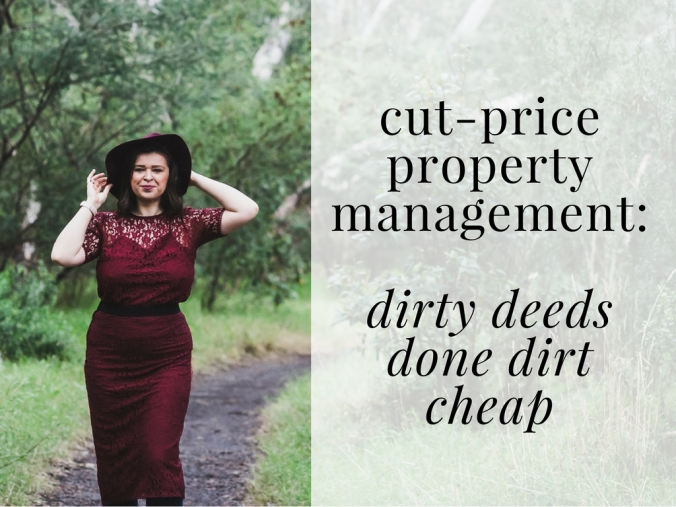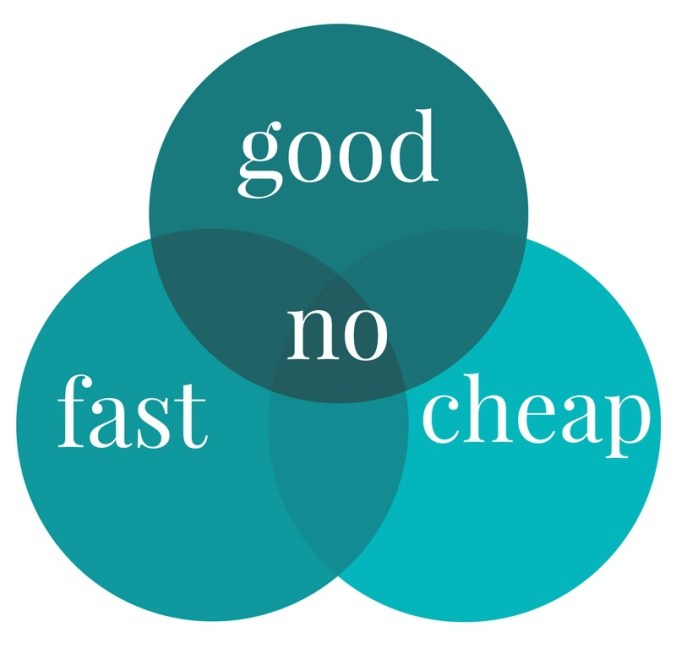
So you’ve chosen to be an estate agent.
Congratulations.
Let me shower you with praise and approval. Lord knows you’ll need someone to cheer your career choice on, because estate agents enjoy the same status in our community as used car salesmen and politicians.
Being a newbie estate agent is an emotional rollercoaster. On any one day you could sell a home for a record price, cop an absolute earful when cold calling, help someone through one of the most difficult transactions of their life or lose a listing you’ve fought tooth and nail for.
Having been there and done that, I present you with a practical guide to your first year of being a newbie estate agent. You’re going to learn more about yourself, about people and about life than you ever thought possible. Enjoy it all.
1. Prospecting
Your success in real estate is predicated by your commitment to creative prospecting. First stop: cold calling. Being the new kid on the block, you’ll most likely be ‘shadowing’ a Principal or senior agent while you get your bearings. During this time, you’ll probably be given masses of old OFI sheets with barely legible names and numbers on them. If you’re really lucky you’ll be given data groups to call through on your company’s CRM.
You’re going to need to make yourself comfortable with calling people who don’t really want to hear from you very quickly. I’ve seen many real estate careers swim or sink based on the agent’s capacity to deal with rejection and social disapproval. Prospecting successfully begins with the attitude you bring the activity.

If you anticipate a gruff response or an immediate hang-up from your prospect, or if you strike an apologetic tone – you’re starting at a real disadvantage. You need to understand that the recipient of your call is fortunate to be receiving your service and attention. You’re calling them for a purpose, right? Come to each conversation with a purpose. I recommend sharing information as your most successful point of introduction. The more specific the information you can provide to the prospect, the better: always ask them for email addresses. And never, ever ask if it is a good time to talk.
It’s important to acknowledge that not all phone calls result in data and quality conversations. If a buyer’s attitude is poor and they behave badly, they get deleted from the database. You don’t want to prospect people who are jerks for the rest of your career, rite?
Think creatively about what you can offer, and come to every prospecting action from the position of doing the call’s recipient a favour. The tone in your voice and bearing will change. So will your hit rate.
2. Presentation
The way you present matters. As in all service industries, your dress should serve to maximise connection between you and the client you serve. Have you got a million tatts and piercings? Do you live exclusively in leggings and Homer Simpson t-shirts? (If so, I am jealous of your comfort and sartorial splendour). No matter how snazz-tastic your wardrobe, your personal style has nothing to do with the way you will present as an estate agent. Tips on dress for your first year out:
- Wear the best fresh and clean business wear you can afford. Target does a good job of it.
- Don’t wear sunglasses (not even on your head) at opens. It creates a barrier between you and your audience, and signals a louche casualness.
- Avoid getting all your goodies out. Look gorgeous or handsome by all means, but there’s no need for too-tight shirts or too-short skirts. It’s not comfortable, either.
- Make an effort to smell good, not overwhelming.
You can – and should! – let your personality shine in the business attire you choose: but remember first and foremost that you want to create as few barriers to connection with your clients as possible. Be what they need you to be for them. Some clients will want a pitbull negotiator personality. Others will want a patrician market expert with a superior gift of the gab. Be nimble and flexible with your presentation and approach to each client.
3. Winners & Losers
You’ll win some deals, you’ll lose some deals. Learning how to ride the highs and plumb the depths without losing your mind is the secret to getting past your first year in ‘the game’. You’ll get better managing your emotions and expectations around listings. If you’re beginning your career in an agency that understands the import of mentoring junior team members, you will be supported by a more experienced team member who will hopefully help you put losses and wins in context.
In the early stages of your career, every win and loss is an opportunity for learning and refining your skillset. What worked so well about your dialogue with that particular client? What could be been more relentless about your approach to prospecting a listing snuck from under your nose? Keep on keepin’ on. Real estate success requires a determination to keep learning and improving.
A note on lost listings: if you don’t have a relationship with all ‘decision makers’, it is very hard to win the business. Also, not all listings are ‘for you’. Some lost business may be a blessing in disguise with a nightmare vendor who never sells! When you lose, just think: what’s next?
4. Education
Happily, real estate and sales training can be found with ease.
First stop for education should be within your office. Your Director or mentor will ideally be taking an active role in your development by showing you best real estate practice. Too often, individuals who could be perfectly good estate agents leave the industry because they’ve been starved out by their office (i.e. Directors hogging all leads in a tight market, leaving inexperienced agents with nothing to work on or experiences to learn from), or simply sent out to be agents on their own without support. If you feel you are not being adequately supported by the organisation you’ve chosen to work with, look elsewhere. Real estate careers are long ones – make sure you select the right environment to begin yours from.
Beyond in-agency support, attend all the formal training opportunities provided by your organisation. Trek to AREC and be inspired by some of the best real estate thought leaders locally and internationally. Listen to (any number of) real estate podcasts for amazing ideas on prospecting and dialogue. Pore over your copies of Elite Agent for the many clues left by success. And read, voraciously. Business, fiction, personal development: it doesn’t matter. New knowledge means better connections with your clients and better BBQ banter in your personal life.
Whether you become a career estate agent or you use your time in the industry as a platform from which to springboard into another people-centric service category – have a blast! You’re dealing with people at their very best, and their very worst: it’s a privilege either way.





















